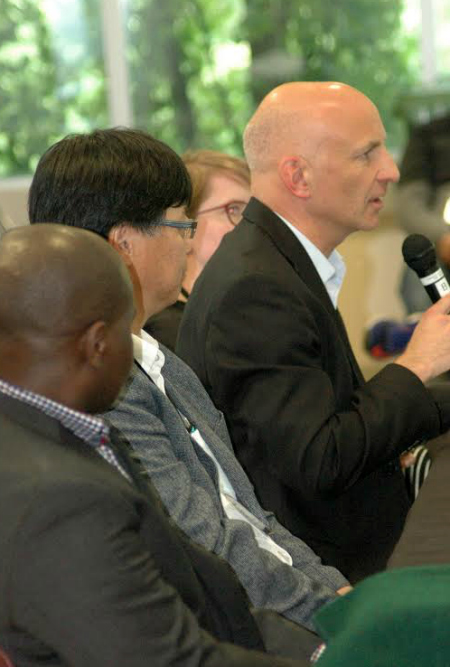
EXPERT IN THE HOUSE: Dr. Kevin Ilcisin was the keynote speaker at this year's Faculty of Engineering Graduate Research Symposium (FEGRS).
"It was an opportunity for students to present their research, develop communication skills, prepare for their careers," said Ryan Chee, a fourth-year PhD student in electrical and computer engineering. Chee is the president of FEGRS, the group of students who organize yearly event at the Faculty of Engineering.
FEGRS features a number of friendly competitions in several categories. In all, there were nine graduate students who took home top prizes in oral competitions and eight in poster competitions. (There were also four prizes reserved for undergraduates.) In addition to these, there were two prizes for sustainability posters. "This year the organizing committee decided to have a special focus on sustainability in engineering," Chee said.
But probably the most waited-for event was the Research Elevator Pitch. Contestants were judged clarity of thought and their ability to engage. They had three mintes, could use one prop, but no slides or other media-and no other support.
This year, first prize went to Dylan Brenneis, who spoke about his research in prosthetic limbs at the Blinc Lab. Ahmed Ead was a very close runner-up in the competition, talking about his research in alternative ways to reinforce concrete. Other notable contestants in the elevator pitch category included Hillary Sweet, presenting her research on point-of-care medical devices, and Maryam Akbari talking of her research in bio-waste. Votes from judges and audience members ultimately decided the winner.
"What made these pitches so memorable was how excited the presenters were about their work and how they were able to demonstrate its importance to the rest of us," Chee said.
The symposium brought value to graduate students, helping them share their research with peers and giving them tools that will help them make the jump to their careers. Keynote speaker Kevin Ilcisin, Electrical '86, is a vice-president of product marketing at the National Instruments. He gave an inspiring address as well as participating in a panel discussion and network events, including the industrial mixer.
One of the highlights for Chee was the very successful mixer, organized by Runzhi Xu. "She worked really hard on it and was such a valuable addition to the team," Chee said. "It think our teamwork as a group is what made this year's FEGRS such a success." And other people were noticing, too. "There were some representatives from NSERC and, after our industrial mixer, they came to us to ask us for our advice on running successful events like this one."